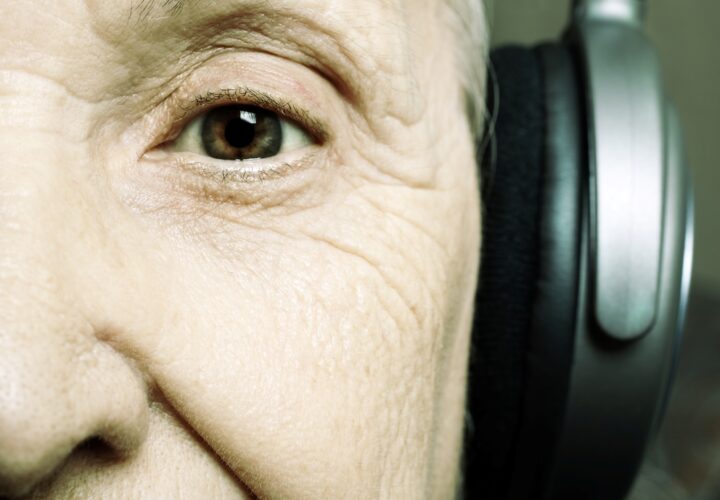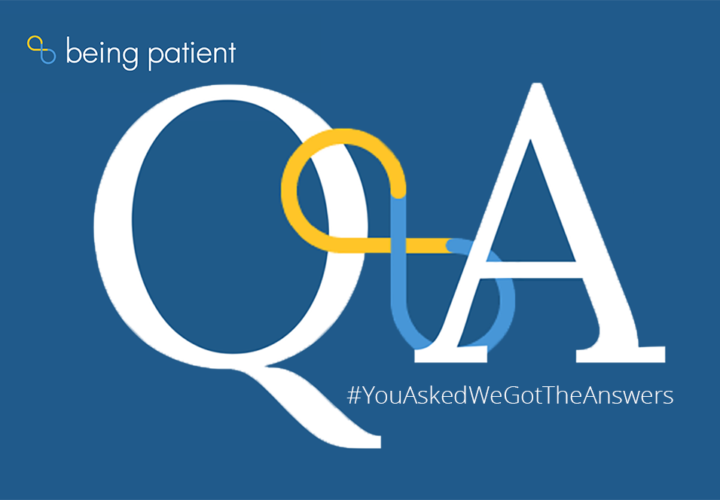You’ve probably seen viral videos of patients with dementia suddenly experiencing renewed vigor after listening to a song from their youth. Previously slumped over in wheelchairs or unable to communicate, dementia patients suddenly start snapping their fingers and responding to questions once a pair of headphones playing their favorite tunes has been slipped over their ears.
Music therapy is easy enough to implement as a treatment for patients suffering from Alzheimer’s and other dementias. But what might be more important is why this connection exists. Being Patient spoke to Jason Warren, M.D., Ph.D., of University College London, about his work looking into how studying music may be able to show us how memory functions.
- Music can be used as therapy for dementia patients, but also as a tool to understand how memories are retrieved
- Studying how people with Alzheimer’s emotionally react to music may allow us to see how Alzheimer’s affects the ability to process emotion
- Music can be used to improve feelings of well-being on a chemical and hormonal level
Being Patient: Professor Warren, can you give us a brief overview of what exactly your research looks at and what you’ve learned so far?
Jason Warren: We’re trying to look at sound, and particularly music, in two different ways. One is to try to understand why music might help in terms of managing patients with dementia. The other way we think about music is as a tool to understand what’s going wrong in particular dementia diseases. There’s quite a lot of evidence from our clinical experience, and now also increasingly from science, to suggest that these dementia diseases might affect the processing of music in different ways. Using music as a probe of the brain in those diseases might help us understand what’s actually going wrong at a relatively early stage, when we could use interventions and treatments.
Being Patient: What has your research shown you about memory and sound, and what can you tell from measuring how the brain responds to sound?
Jason Warren: At one level, we tend to think that music is a good way of accessing memories. Most people’s experience is that there’s particular music from their lives which will vividly reanimate times in their life. And anecdotally, we hear that music can sometimes be a way to access memories.
But I think that we’re a long way from really understanding what’s going on in that situation. What I’ve been doing is to look at a much more basic method of processing, which is to ask what sorts of things about [processing] music might be common to other kinds of cognitive function, like memory. When you make sense of music, you have to be able to track and follow what’s going on over a period of time. And sometimes people can have very powerful emotional reactions to music. I would argue that sometimes when we retrieve a memory, you might expect some of those processes to go on as well, particularly if you are retrieving emotional memories. A lot of our research in Alzheimer’s disease has suggested we might actually be engaging very similar parts of the brain.
When we play music for people with Alzheimer’s, we see differences appearing in their brains compared to what’s going on in healthy people of the same age. The differences we see are specific to the areas that we know are involved in memory formation, memory retrieval, in completely different contexts.
Being Patient: Do you think you’ll get to the point where you can use someone’s ability to process sound as a way of measuring cognitive decline?
Jason Warren: We would like to get to that point. At the moment, what we actually measure when we sit someone down in the office is relatively limited and has a focus on memory. Most people that come to the clinic, the first thing they say is I’m worried about my memory. But often what they are doing is using memory as a shorthand for a much wider range of processes. We’re beginning to understand that people with Alzheimer’s have difficulties with social interactions. To some extent, they find busy environments, auditory scenes, challenging. What we’d like to be able to do is tap into the much wider range of processes and have tests that could actually measure those as well. It might allow us to be able to identify people that might be at risk of developing full-blown Alzheimer’s earlier on.
Being Patient: You mentioned emotional responses, and one of the symptoms in people with Alzheimer’s or dementia is mood swings or aggression. Do you think you are getting closer to what’s happening in the brain that’s specifically affecting their emotional responses? And have you seen any evidence that music might lead to changes in behavior in a positive way?
Jason Warren: We can see a failure to react emotionally to music, which I guess is the equivalent of not being able to remember something: You play someone a piece of music that maybe was once very emotional to them, and they don’t react. People with Alzheimer’s will quite often say, I am becoming more emotional. Their ability to monitor and control emotions may be lessened. I think music allows us potentially to tap into all of those things.
In terms of its ability to benefit, more anecdotally, we know that we can use music in that way. Many caregivers have already found that useful. We know from lots of work now in normal people, that music certainly can be used to improve well-being. It’s not just subjective well-being; it’s also things like hormonal changes, changes in your brain chemicals.
This interview has been edited for length and clarity.




This is all really interesting material. I want all of my age cohort friends to read it.